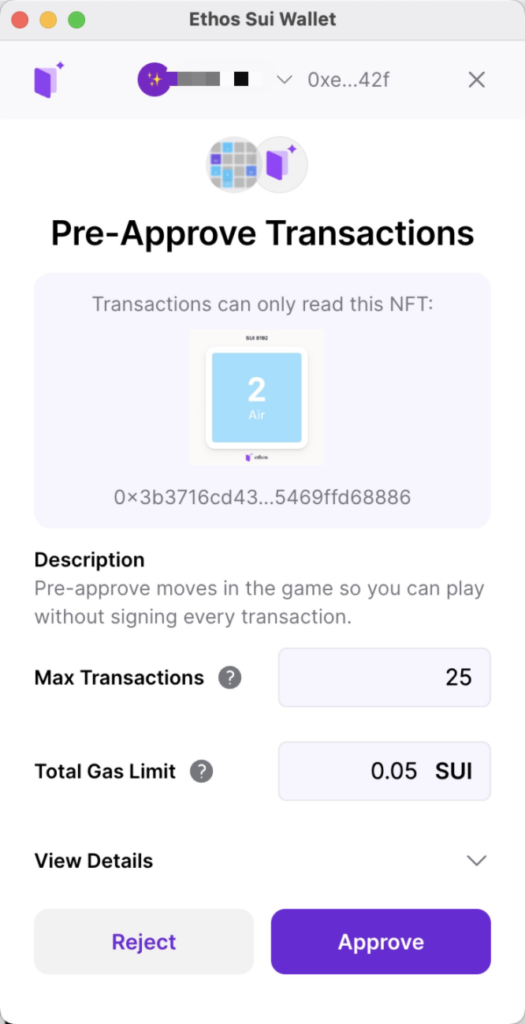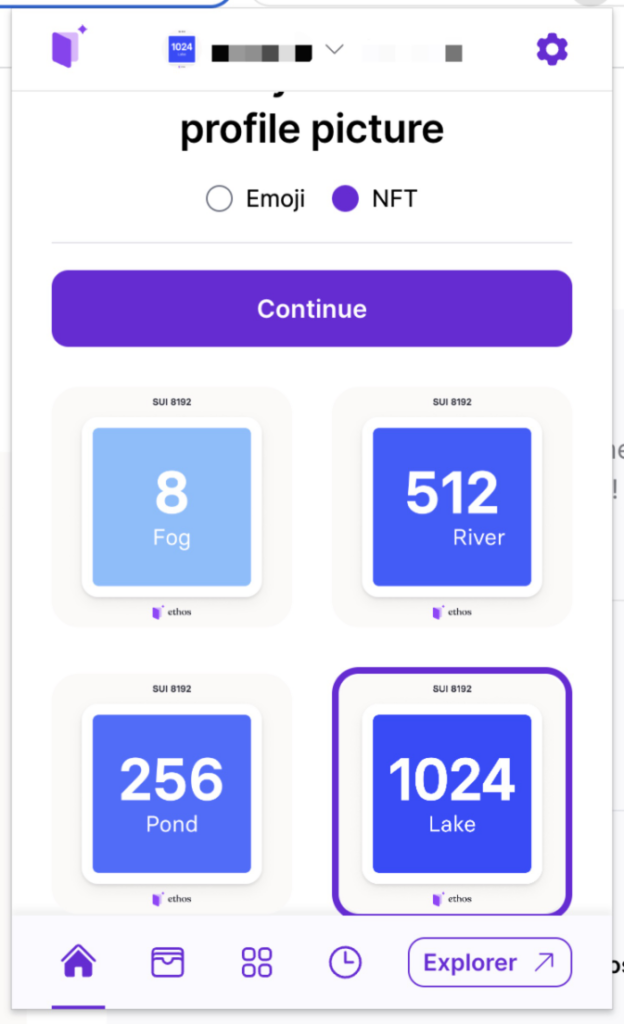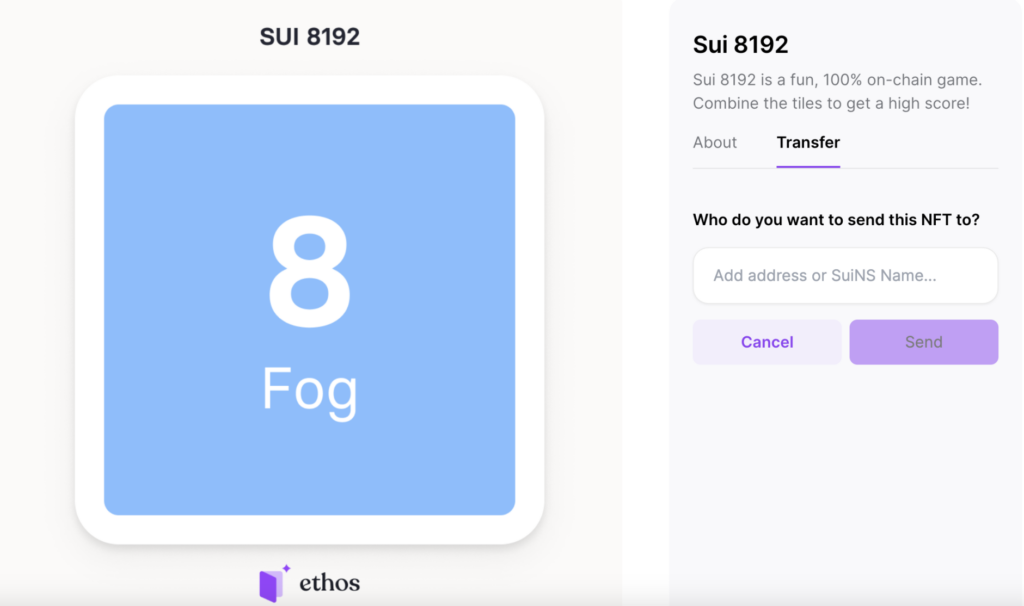by Peng SUN,Foresight News
Each game round is an NFT, which can either be displayed socially as a PFP avatar or forwarded to other players to continue completing the 8192 game goal.
Recently, many people may have played the addictive number puzzle game called 2048. Despite its seemingly simple gameplay mechanics, this game manages to captivate players and keep them engrossed for extended periods of time. The allure lies in its minimalistic approach, relying solely on numbers to create an addictive and determined gaming experience. Such puzzle games, from classics like Minesweeper and Tetris to modern titles like Linking Game and HAPPY ELIMINATING, have become quite commonplace, offering diverse forms of entertainment to each new generation.
Within the Sui ecosystem, Ethos stands as a self-hosted wallet that leverages the Move language and the Sui blockchain. As part of its offerings, Ethos has introduced Sui 8192, a digital puzzle game inspired by the popular 2048 format. While the user interface may differ, Sui 8192 is a fully on-chain game, with all game logic and rules automatically executed through smart contract code. Compared to Dark Forest, Isaac, and OPCraft, Sui 8192 does not aim to present grandiose ideas or narratives. Rather, it serves as an ideal small-scale experiment, devoid of complex technologies such as MUD engines. It eschews speculative financial elements, instead focusing on an incredibly cost-effective approach and a captivating gameplay experience, which successfully attracts a large number of active users.
Sui 8192: Each NFT represents a game round
The Sui 8192 smart contract is written in the Move language and consists of three main components: the game, the game board, and the leaderboard. It covers various aspects such as block movement, game state input, game logic, and real-time score ranking.
Simply put, each game session in Sui 8192 requires the generation of an NFT, with each NFT representing a game session.


In terms of gameplay, Sui 8192 follows almost identical logic to 2048. Players use the arrow keys on the keyboard to slide the tiles in four directions: up, down, left, and right. When two tiles with the same number collide, they merge into a new tile with double the value. The numbers start from 2, and the ultimate goal is to achieve a tile with the number 8192 (2 to the power of 13). Each tile corresponds to a specific symbol: Air (2), Dew (4), Fog (8), Dew (16), Droplet (32), Brook (64), Stream (128), Pond (256), River (512), Lake (1024), 2048, Ocean (4096), and 8192.

However, since all game logic and rules run on-chain, and NFTs serve as objects stored on the Sui network, each state change within the game (NFT) also implies a change in on-chain state. Therefore, every move of the blocks requires authorization from the user’s wallet. Currently, Sui 8192 can be logged in using Sui Wallet and Ethos Wallet. Although it claims that users without a Web3 wallet can also experience Sui 8192 using the Ethos API, the API page is not provided.
For Web3 users, if they use Sui Wallet, they need to authorize each time the block moves, which greatly affects the game experience. Ethos Wallet provides a Pre-Approve feature, where players can input the number of pre-approved transactions and the total upper limit of gas fees in advance, eliminating the need to sign for each movement. Even with pre-approval, gas fees still need to be paid for each movement.

Leave Imagination to the Community
Unlike traditional GameFi, where only assets are on the chain, FOC Gaming distinguishes itself by having all game logic running on the chain. FOC Gaming is revolutionary in nature, it is decentralized, permissionless, trustless, open and transparent, collaborative and composable.
Taking Sui8192 as an example, it deviates from the traditional X to Earn model of GameFi and instead focuses on the the gaming experience itself. This game eschews speculation and trading, yet still manages to captivate players. Additionally, by representing the game itself as an NFT, it adds the attributes of NFTs to the gameplay. Reaching certain game states can now be displayed as PFP, symbolizing one’s intellect, skills, wealth, and status.

Furthermore, we have witnessed how Sui 8192 establishes on-chain collaboration through NFTs. For instance, if a game of Sui 8192 is still in progress, the NFT representing that game can be transferred to other Sui users, inviting them to collectively achieve the game’s objectives. Even if the game is lost, the NFT is still transferable.

According to my limited experience, the mint and transaction fees for the three NFTs, 256, 512, and 1024, cost only about 1.87 SUI, or about $1.233, or 8.8 yuan. This cost is already extremely low, and in this regard, Sui 8192 has set a good example for full-chain games.
However, there are still some problems with the established model. For example, Play is predicated on Pay, but right now there is only Pay, without any economic model. In other words, the problem is that the game fulfills the long-sought ‘ideal’ of blockchain gaming of immersing users without speculative profit, but why should users unilaterally pay for a puzzle game that they can play for free on Web2? What’s more, there’s still some latency in moving the blocks around on Sui, and it’s not as smooth as 2048, so the gameplay experience isn’t the best.
Compared to 2048, blockchain has brought complete decentralization, permissionless nature, data sovereignty, and ownership to Sui 8192. However, the value of ownership has not been fully realized. Currently, the utility of NFTs is limited to potential “collaboration”, and it lacks pricing and liquidity. In other words, one might question, “What is the use of owning this game? What does decentralization have to do with me? How does a trusted data source matter? I just want to play and pass the time.”
The FOC Game represent an “achievement on the chain,” and the scarcity of the NFT lies in how close it is to the number 8192 and the effort that one does not want to repeat (for example, if you achieve an unprecedented high score but suddenly lose, it would be time-consuming and exhausting to redo the past work). Therefore, when everyone can start a new game at any time, only those NFTs with high scores and closer to 8192 have more value in terms of exchange and transferability, even in terms of other social symbols such as PFP. Additionally, returning to the essence of numerical puzzle games and their educational aspect for young people, the community can build Web3 educational products on top of them, making their value not just about scarcity but also about incentivized utility. At this point, the created NFTs can be rewarded with community tokens based on factors such as the number of moves and the value of the blocks, serving as proof of work and intelligence.
As Mr. Lu Xun saying, “In fact, there was no path on the ground; as more people walked, it became a path.” Sui 8192 is based on the high-performance Sui blockchain, but is extremely simple. Its greatest value lies in being permissionless and composable. There is an abundance of imaginative space here, and ultimately what kind of ecosystem and gameplay can be built depends on the community’s thinking and choices regarding this game.



